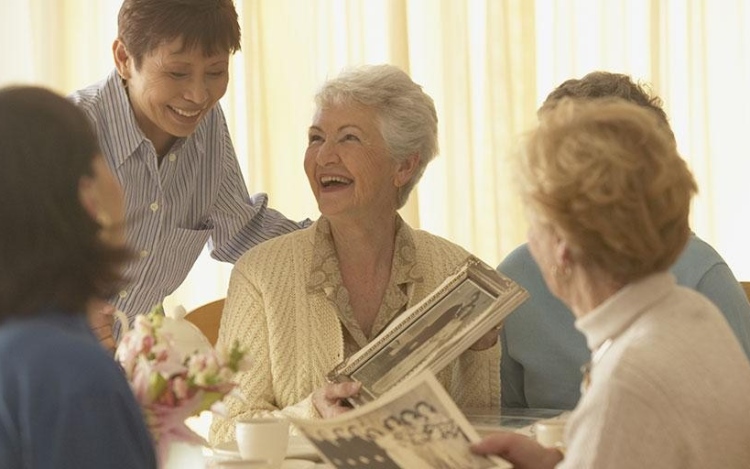It is often difficult to address or talk about physical or mental health deterioration among ageing parents or grandparents or any senior loved ones. At one point in their life, they were at the giving end of care and it is sometimes hard for seniors to come to terms with the fact that they need extra care and help at the moment.
While this is hard for the seniors to accept, the process of caring for the senior and making life easier for them can be even more difficult for the caregiver. This is especially true when the senior loved has any physical or mental health issues.
Problems like Dementia or Alzheimer’s can lead to severe mental health deterioration, making it all the more difficult for the caregiver to devise routines and eating habits for a healthy life. And to make matters worse, mental illnesses are increasingly getting common among the ageing population in Canada.
According to statistics, at least one in five Canadian senior citizens above the age of 65 years will have a mental health issue.
Almost 40% of the people over 65 years of age experience some form of memory loss as well.
These issues are not only going to make life for the senior difficult, but also for the caregiver.
According to Bob Smith of https://www.Halohealthcare.com, as a caregiver, you need to approach the issue with utmost patients and a critical mind to analyse the situation, before reacting to it on reflex to arrive at a solution.
Here are 5 types of issues that may arise while helping an older parent or a senior loved one.
Daily life activities
First and foremost the senior parent may need help in their basic daily activities in life including transportation or housekeeping or cooking and food preparation. This is likely to be the first level of help required by an older parent. During the initial stages of ageing, this might probably comprise all the major areas where the senior needs help from you. It is often based on these situations that further help is managed. For example, if the parent does not have any major difficulty in walking or cooking, it would be fine to let them live alone, but of course with regular checks in between.
It is important to discuss these issues with the parent and assure them of your help. Comparatively, this may be one of the easier issues to address when helping older parents.
Physical and mental health issues
The older parent is quite likely to be dealing with some kind of medical issue, ranging from minor ones like high blood pressure to major ones like Alzheimer’s or Parkinson’s. This inevitably requires regular medication, close monitoring and periodic consultations with the doctor.
In other cases, the senior may start developing health problem, which requires even more care and monitoring on the part of the caregiver so as to notice and report unusual changes.
In all of these cases, the caregiver is required to take charge of the situation and take decisions regardless of what the senior might say, as it may be difficult for them to make a proper judgement.
Safety issues
Safety issues include the senior’s living conditions, finances, accidents and the like. It is important to study the living conditions of the senior and check for possible dangers at their home. This includes the infrastructure of the house as well as the social conditions of their neighbourhood.
Secondly, the senior citizen’s financial capacity and security might also be something to discuss in order to prevent any vulnerabilities and also to ensure financial security.
Likely accidents should also be thought about and discussed with the senior so as to keep them from becoming vulnerable, like driving for example.
General quality of life
It is not enough to merely ensure prompt food and medication for senior loved ones. It is equally important to see to it that the senior also enjoys an active and purposeful life. This requires looking in to their social life and making sure that they stay connected with family and friends, keeping them active and involved in different hobbies or recreational activities and the like. This is an issue that requires deeper conversations and soul searching to find out what matters most to the senior and what doesn’t.
Future planning
Another very difficult issue to address when taking care of an elderly person is their future. However, it is important that you help them set and make their end-of-life goals and decisions. It allows the senior to plan well and not be a prey of last-minute stress and anxiety.
This aspect also includes end-of-life care for the seniors.
In the midst of all these issues, it is also important to take care of yourself and not get stressed out. Only then can you ensure a better life for the senior.







